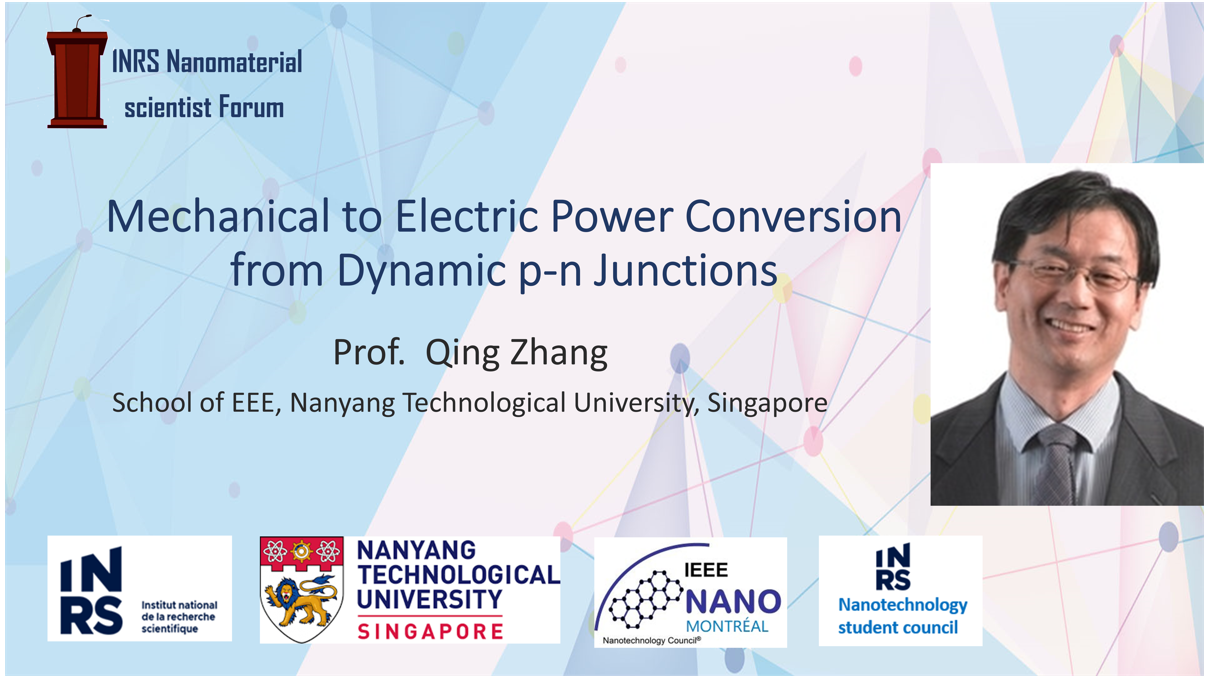INRS Nanomaterial scientist Forum: Mechanical to Electric Power Conversion from Dynamic p-n Junctions

Recent advance in DC electric generators has demonstrated that the new generators are of several advantages over traditional electric generators that are well known to us. In these new generators, DC electric power is converted from mechanical power through either semiconductor junction modification by mechanic impact or dynamic junction by sliding one semiconductor/metal electrode on the other. The short circuit current is determined by the generation rate of electrons and holes at the contacted surfaces, while the open-circuit voltage is determined by the chemical potential difference of the two electrodes. In the talk, I shall review recent advances in the generators and discuss the mechanisms of electron/hole generation and transport in the devices. Advances in fundamental semiconductor physics and perspectives and technical challenges will be highlighted.
Date and Time
Location
Hosts
Registration
-
 Add Event to Calendar
Add Event to Calendar
Loading virtual attendance info...
Speakers
Mechanical to Electric Power Conversion from Dynamic p-n Junctions
Biography:
Qing Zhang is an associate professor in the School of Electrical and Electronic Engineering, Nanyang Technological University, Singapore. His research interests include carbon based materials and electronic devices and carbon/silicon related thin films, etc. Currently, his attention focuses on carbon nanotube based devices and fundamentals, CVD diamond and diamond-like carbon films based devices, etc. He has published 170 peer-review scientific papers in pre-eminent journals and presented his research results in 150 conferences and workshops. He is a fellow of Singapore-MIT alliance. He is the chairman for Symposium of Nanodevices and Nanofabrication in International Conference on Materials for Advanced Technologies (ICMAT) 2005, ICMAT 2007, ICMAT2009 and ICMAT2011.

